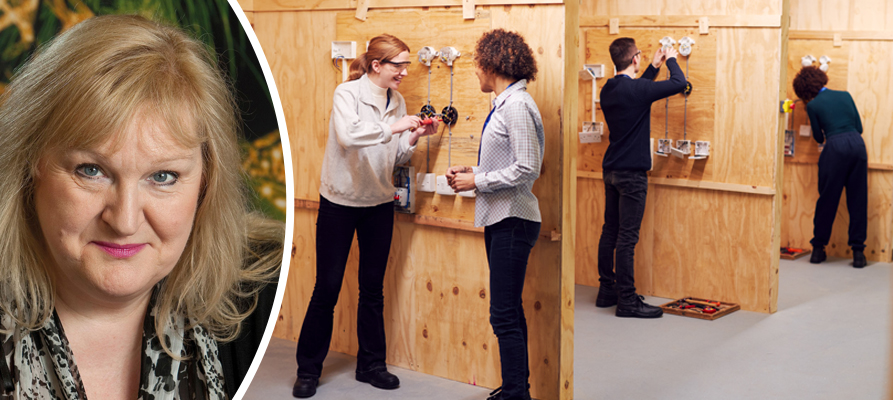
TRAINING provider the Scottish Electrical Charitable Training Trust (SECTT) has provided £54,000 of additional financial assistance to help facilities hit with ‘spiralling’ materials costs.
The funding to the electrical departments at 21 approved centres – which range from Stornoway and Thurso in the north to Dumfries in the south – was delivered after costs rose by approximately 30% in just a few months.
SECTT revealed the extra money recognises the contribution the 20 colleges and one private centre make to training as well as the importance of apprenticeships to the future of the electrical industry in Scotland.
Anne Galbraith, CEO of SECTT, said, “The past two years have been extremely difficult for all the centres, which were closed for face-to-face learning for long periods. Working with SECTT, they responded magnificently with online learning, which certainly filled a gap until they were able to reopen. However, now we are back to in-person learning again, the rising cost of materials that are essential for training courses has proved a challenge for all our colleges, so we were more than happy to assist.
“Electrical apprentices require considerable practical training, so the centres were made a priority, with the money approved by the SECTT board of trustees at a recent meeting and allocated proportionately to the number of classes starting in the 2021 recruitment year.”
Scott Foley, regional officer at Unite the Union, and chair of the SECTT trustees, added, “SECTT is pleased to be able to make this financial contribution to our college partners as we have been a consistent advocate of the practical encouragement of young people and of the value of meaningful training. SECTT has achieved major success in recent years, not least in establishing a new perception of the next generation of electricians by emphasising their skill, dedication and professionalism as well as the competence, confidence and maturity required to achieve their qualified status.
“This has been reflected in the 770 apprentices and adult trainees who enrolled on the electrical apprenticeship in 2021 – the highest figure for 12 years – and recruitment remains buoyant.”








